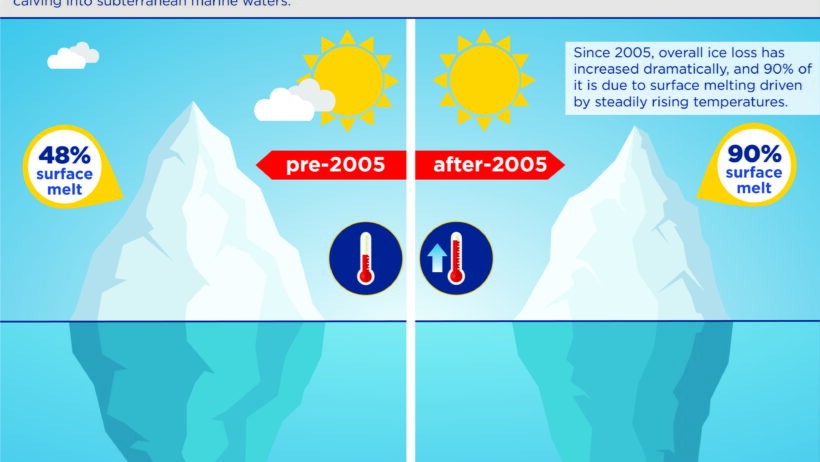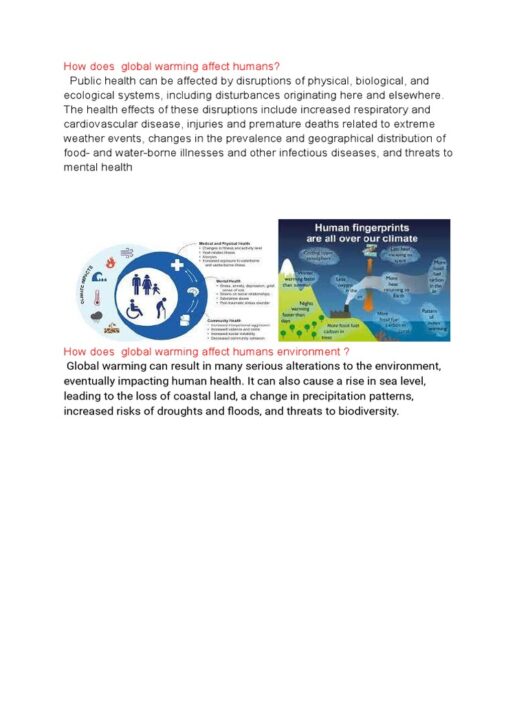Ocean waste has become a pervasive and alarming issue, largely overshadowed by the more visible factors contributing to climate change. While global warming is often associated with greenhouse gas emissions and deforestation, the perilous state of our oceans plays a significant role in exacerbating this crisis. With millions of tons of plastic and other debris drifting across the seas, one must ponder—could the very material we consider waste be influencing our climate in ways we have yet to fully comprehend?
The reality is that the problem of ocean waste is multifaceted, intertwining environmental degradation with profound implications for global warming. First, we must understand the composition of ocean waste. Reports indicate that approximately 80% of marine debris originates from land-based sources. This includes plastics, metals, glass, and textiles, which degrade at varying rates, often taking hundreds of years to break down. The persistence of these materials aberrantly alters marine ecosystems, thereby influencing overall ocean health.
The connection between ocean waste and climate change is not merely theoretical. Marine debris directly affects the ocean and its processes. For instance, floating plastics can inhibit the natural absorption of carbon dioxide, a critical function of oceans in regulating Earth’s climate. When microplastics and other debris accumulate on the ocean surface, they form a barrier that reduces the capacity of phytoplankton—tiny microorganisms responsible for carbon dioxide absorption. This disruption in the ocean’s carbon cycle contributes to elevated levels of greenhouse gases in the atmosphere, further exacerbating global warming!
Another phenomenon exacerbated by ocean waste is the creation of microplastics. These minuscule particles, often less than five millimeters in size, result from the degradation of larger plastic items. They are insidiously pervasive, infiltrating the food chain, and posing significant hazards to marine life. When marine creatures ingest microplastics, they not only suffer physiological harm, but they also contribute to the bioaccumulation of toxins that can ultimately end up in our own bodies through the seafood we consume. This bioaccumulation impacts fish populations, which can alter species dynamics and, consequently, the broader marine ecosystem’s functionality.
Moreover, ocean waste manifests a correlation with ocean temperatures. As waste materials degrade, particularly plastics that release harmful chemicals into seawater, the chemical composition of the oceans can change. These alterations can lead to harmful algal blooms that disrupt marine ecosystems and emit potent greenhouse gases, such as methane. Therefore, the very waste that accumulates on our shores can catalyze a series of environmental shifts, propelling us towards unprecedented warming.
Perhaps one of the more challenging aspects of addressing ocean waste is the misconception that it is a problem localized to coastal regions. In reality, ocean dynamics ensure that debris doesn’t remain stagnant; it can drift far from its origin, carried by currents and winds. Consequently, the ripple effect means that communities far removed from waste-producing activities are also affected, crossing geographical and societal boundaries.
What’s more, the aesthetic appeal of our oceans significantly deteriorates due to waste accumulation. While it may seem superficial, the impact on tourism-driven economies cannot be underestimated. The loss of pristine, unpolluted marine environments can diminish local revenues, further straining communities already grappling with the implications of climate change. The convergence of ecological degradation and economic loss forms a pressing reality that can motivate action.
What if every individual took on the challenge of reducing their plastic consumption? Could we stem the tide against ocean waste? The answer, while complex, seems hopeful. Initiatives such as zero-waste movements, clean-up campaigns, and community awareness programs are vital avenues for fostering behavioral change. If individuals, communities, and policymakers could align in adopting sustainable practices, the potential to reduce ocean waste and subsequently mitigate its effects on climate change becomes a feasible goal.
Indeed, the responsibility does not rest solely on the shoulders of individuals; corporations and governments must also enact comprehensive policies to curtail waste generation. Regulations aimed at reducing single-use plastics, coupled with investment in sustainable materials and innovative waste management systems, represent critical steps in addressing this pervasive issue. The implementation of Extended Producer Responsibility (EPR) frameworks, compelling manufacturers to mitigate the environmental impact of their products, can play a pivotal role in reducing ocean waste.
In conclusion, while ocean waste may not always be top of mind in discussions surrounding climate change, its insidious role cannot be ignored. The degradation of marine environments directly intersects with climate dynamics, illustrating the urgency of addressing this hidden contributor. As stewards of the planet, we face a formidable challenge: How can we take actionable steps toward mitigating ocean waste’s impact on global warming? The answers lie in a collective commitment to reducing, reusing, and recycling—a clarion call for global action in preserving the health of our oceans and, by extension, our planet.








